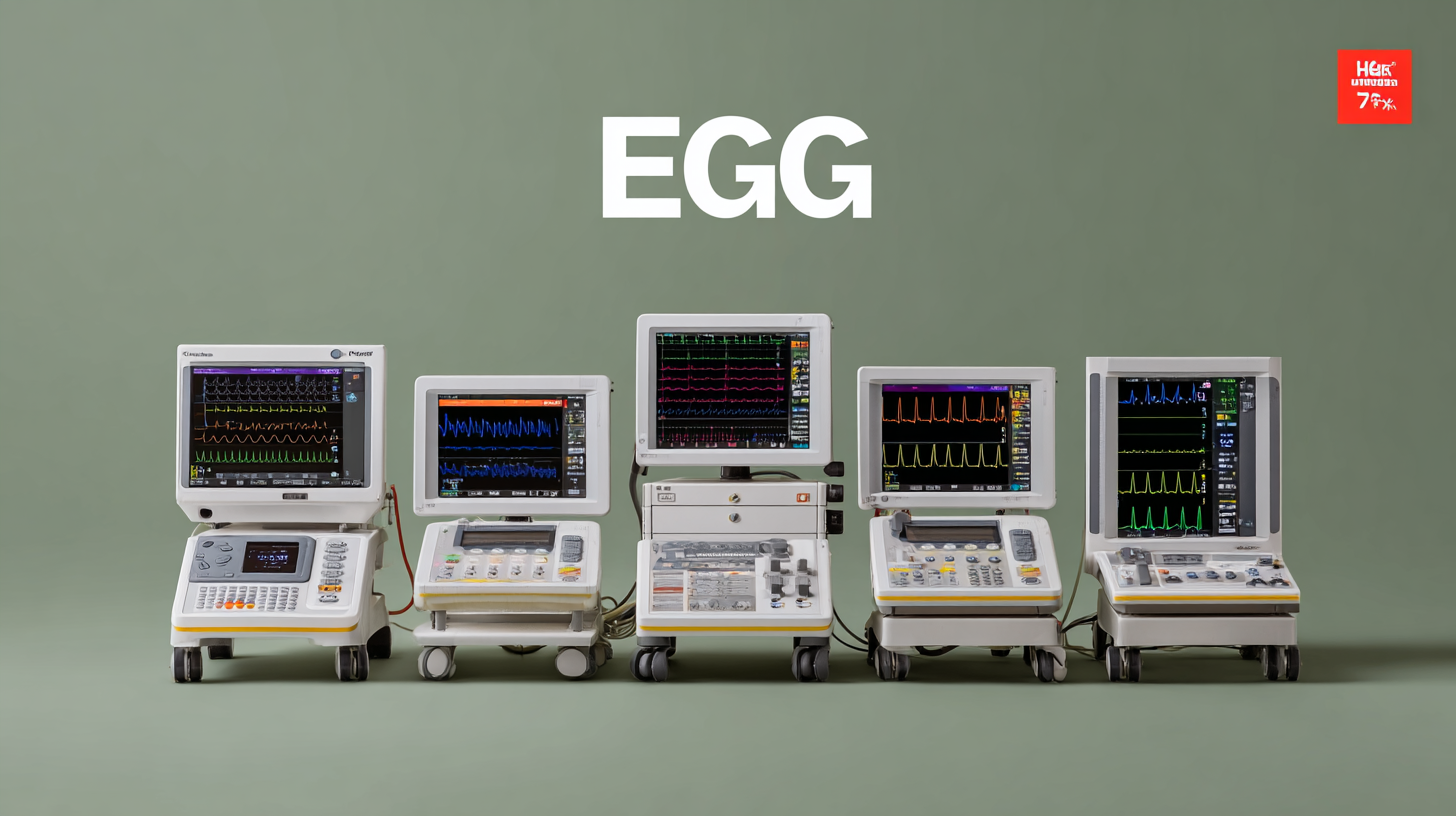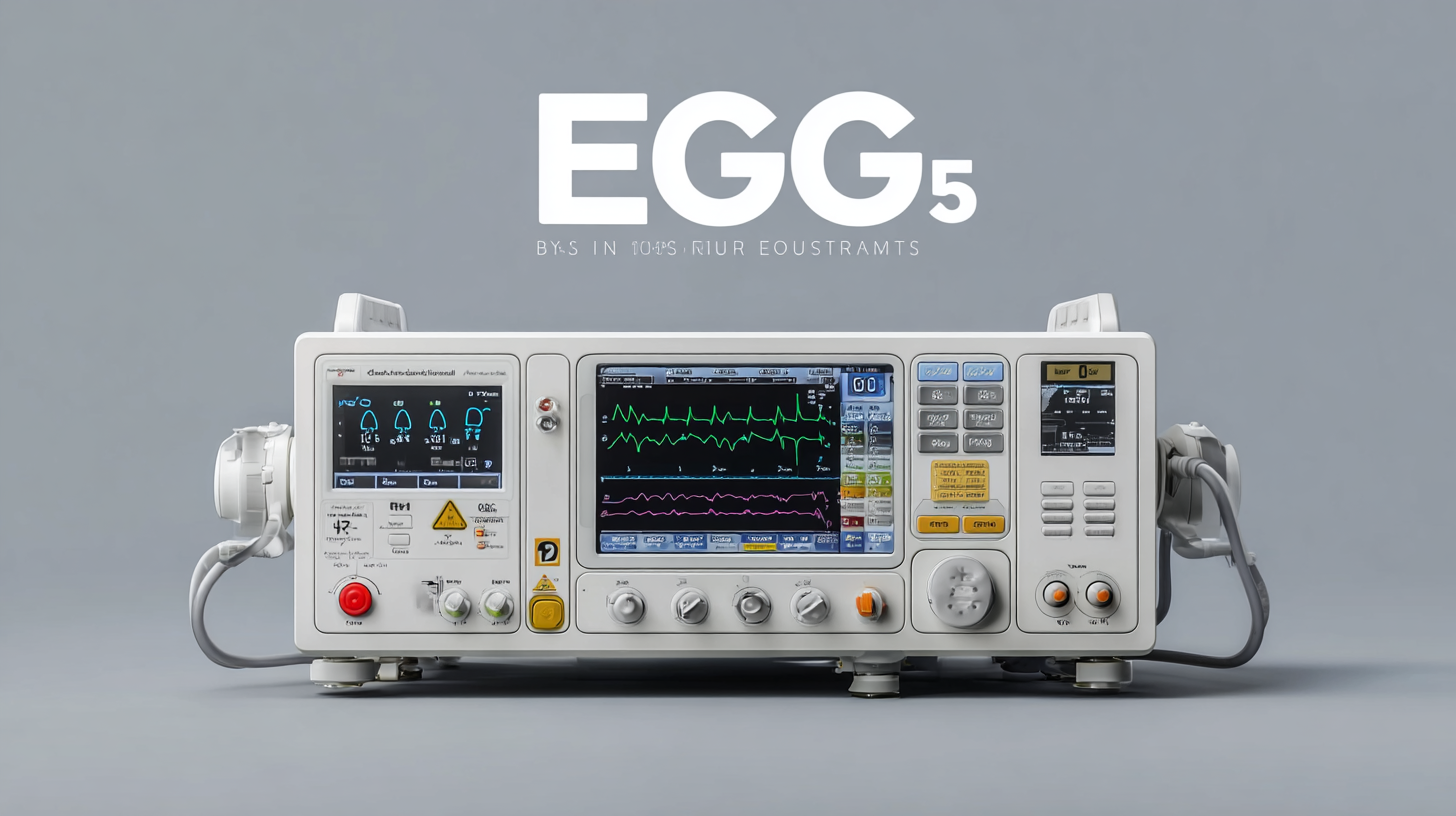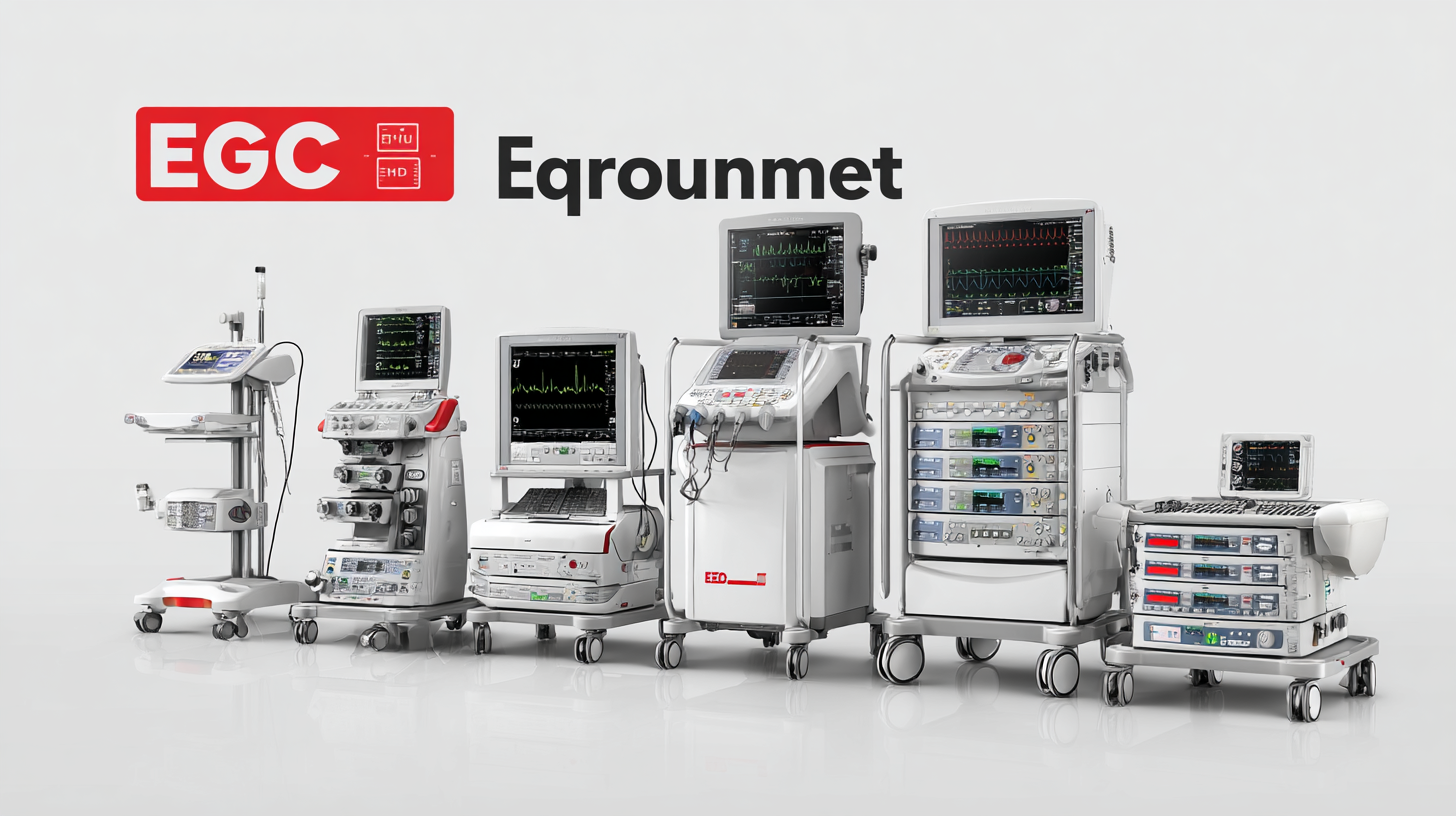Bankim Nagar, Siliguri, West Bengal
- GST NO. : 19BHDPS7640K1ZR
5 Key Factors to Choose the Best Ecg Equipment for Your Needs
In the rapidly evolving field of cardiac care, selecting the right ECG equipment is vital for ensuring accurate diagnostics and effective treatment. According to a report from Grand View Research, the global market for ECG devices is projected to reach USD 6.3 billion by 2025, driven by the increasing prevalence of cardiovascular diseases and the growing adoption of advanced diagnostic technologies. Choosing the right ECG equipment involves a careful assessment of various factors, including technology, ease of use, patient comfort, portability, and cost-effectiveness. As healthcare providers strive to enhance the quality of care and improve patient outcomes, understanding these key factors becomes essential in making informed purchasing decisions. This guide will explore five essential considerations to help you choose the best ECG equipment for your needs, ensuring you are well-equipped to meet the demands of modern cardiac diagnostics.

Understanding Your Specific ECG Needs for Accurate Diagnosis
When selecting the best ECG equipment, the first step is to understand your specific
ECG needs. Different clinical settings, such as hospitals, outpatient facilities, or home healthcare, require varied
capabilities from ECG devices. For example, if you are working in a fast-paced emergency department, a portable ECG machine with rapid printout capabilities may be essential. Conversely, for a cardiology clinic focusing on long-term patient monitoring,
a device with advanced analysis features and connectivity to electronic health records may be more appropriate.
Furthermore, consider the types of tests you’ll be conducting. If you need to perform standard ECGs, a basic machine may suffice,
but for specialized procedures like Holter monitoring or stress testing, you’ll need equipment that can accommodate these functions.
It’s also critical to evaluate the user interface and training requirements; intuitive devices will streamline the process and minimize errors,
allowing healthcare professionals to focus on providing optimal care. Ultimately, choosing the right ECG equipment tailored to your specific needs
will enhance diagnostic accuracy and improve patient outcomes.

Evaluating the Technical Features of ECG Equipment
When selecting the best ECG equipment for your needs, evaluating the technical features is paramount. The accuracy and reliability of an ECG machine largely hinge on its specifications. Look for devices that offer high-resolution displays, as this allows for clearer readings and better diagnostic capabilities. A higher sampling rate is crucial for capturing detailed heart rhythms, ensuring clinicians can make informed decisions based on precise data. Additionally, advanced filtering techniques can help reduce noise interference, leading to more accurate interpretations.
Connectivity is another essential feature to consider. Modern ECG equipment often integrates seamlessly with electronic health record (EHR) systems, enabling easier data sharing and patient management. Wireless capabilities can enhance usability, allowing healthcare providers to conduct tests without the constraints of wired connections. Furthermore, explore devices that offer software solutions for data analysis and reporting, as these can significantly streamline workflow and improve patient care outcomes. In choosing ECG equipment, prioritize features that align with your clinical environment and patient needs to ensure optimal performance and efficiency.

Assessing Reliability and Accuracy in ECG Machines
When selecting ECG equipment, reliability and accuracy should be at the forefront of your decision-making process. Recent advancements in technology have significantly improved the potential of ECG machines, especially with the integration of deep neural networks for predicting electrolyte concentrations through valuable ECG data. This method enhances the ability to deliver precise and continuous monitoring of patients, providing a solid foundation for further diagnostic assessments.
Additionally, consumer-grade devices have shown commendable accuracy in capturing heart rate and other vital signs, making them a viable option for both clinical and home settings. Modern smart devices can reliably measure QT intervals and heart rate variability, crucial parameters for assessing cardiovascular health. By understanding these cutting-edge technologies and their validations, healthcare professionals can make informed choices about which ECG equipment best suits their needs, ensuring they maintain a high standard of care for their patients.
Comparing Cost-Effectiveness and Budget Considerations
When selecting ECG equipment, one of the most crucial considerations is cost-effectiveness. Understanding your budget allows you to evaluate features that matter most to your practice. While higher-priced models often offer advanced functionalities, it’s essential to weigh these against your specific needs and how frequently you’ll use the equipment. For instance, a high-end device may be worthwhile for a facility with a high volume of patients, where accurate data analysis can lead to better diagnosis and treatment.
On the other hand, smaller practices or those just starting may find that mid-range options, which still deliver reliable performance without the hefty price tag, meet their requirements perfectly. It's also wise to consider ongoing costs such as maintenance and consumables, as these can quickly add up. By comparing not only the initial purchase price but also the total cost of ownership, you can make a more informed decision, ensuring you select ECG equipment that balances your financial constraints with functionality and quality.
Exploring After-Sales Support and Warranty Options for ECG Devices
When selecting ECG equipment, after-sales support and warranty options are pivotal factors that can significantly influence your decision. High-quality ECG machines can be a considerable investment, and having robust support from the manufacturer is essential. Consider the availability of technical assistance and service response times. A reliable company should offer comprehensive customer support, ensuring that any issues with the equipment can be promptly addressed to minimize downtime in clinical settings.
Additionally, the warranty options provided with the ECG devices should be carefully evaluated. A longer warranty period often indicates the manufacturer’s confidence in their product's durability and performance. Look for devices that come with extended warranties covering parts and labor, as this not only protects your investment but also offers peace of mind. Some manufacturers may even provide additional maintenance packages or service plans, which can be beneficial in the long run. By prioritizing after-sales support and warranty options, you can ensure that you are equipped with reliable ECG technology that supports your specific healthcare needs.
Evaluation of Key Factors in ECG Equipment Selection

